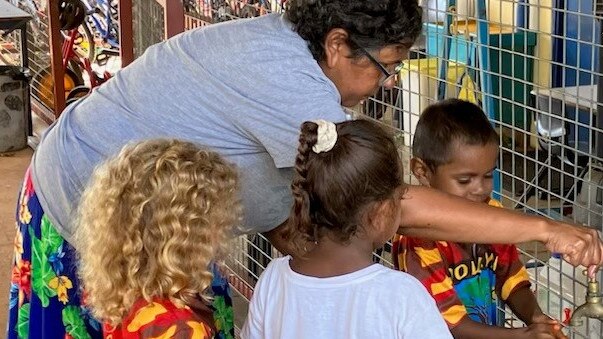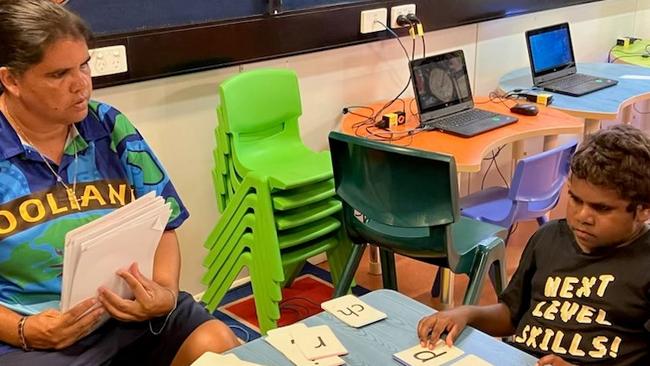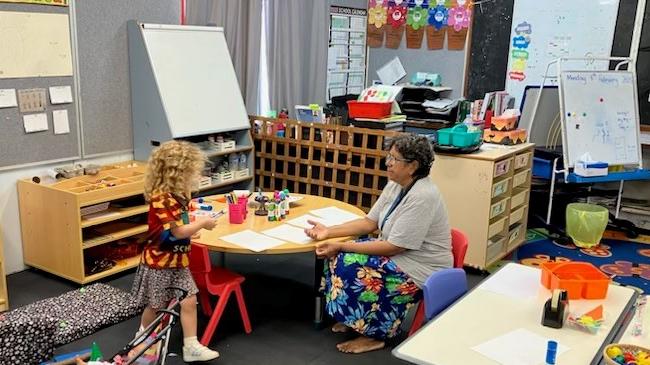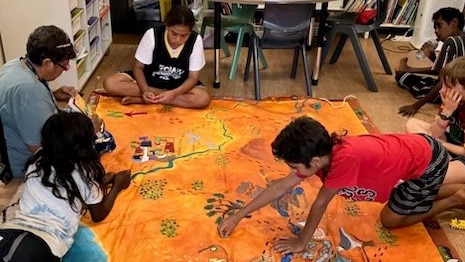Daly River women becoming remote educators to aid local community
A family of four women are studiously supporting each other so they can become teachers helping other remote children achieve their own education goals.

News
Don't miss out on the headlines from News. Followed categories will be added to My News.
The Daly sisters – Kellyann, Sharon and Nadine – share a reality uncommon to most other teachers in Australia.
The three women, together with Sharon Daly’s daughter Chrysilla Miller, all work at Woolianna School – a primary school in Daly River, located near Katherine and more than 200km from Darwin.
They have just completed their undergraduate certificate to become remote educators as part of the Remote Aboriginal Teacher Education program.
Part of the program’s aim is to build the capacity of educators in remote and very remote settings.


One aspect of this is giving participants the opportunity to teach while completing their degree at the same time.
The Daly sisters and Ms Miller have been able to work at the same school and study together, helping one another in the process.
“We all support each other to study,” Kellyann said.
“To become a teacher will be great for us,” Ms Miller said.
“I now work with Sharon, who is my mum and we both work in the preschool.”


The four women have progressed to doing a Diploma of Education Studies through the program and continue to learn and apply their knowledge every day in the classroom.
“I just want to help children and see them achieve,” Kellyann said.
“We’ve got 27 students on our roll and attendance varies from 15 to 19.”
She is currently teaching children from Transition to the third grade.
“I like seeing happy kids and seeing them learn in an environment that’s safe,” Ms Miller said.
“Sometimes the job is hard.
“Community unrest makes the community divided and we don’t want that, we want everyone as a community to be there for the kids.”

Working as remote educators, the women say any number of problems in the classroom may arise and they have drawn on one other and their teaching assistants for support.
“If things aren’t working we go and ask someone else for advice and ideas,” Kellyann said.
“They might give us a different way of doing it.”
“I think we need more Aboriginal educators,” Sharon said.
“We can teach in the Indigenous language, we can translate, so students can understand.
“If they have a teacher trying to teach them and they don’t understand, we can help them in their language and it gives them more knowledge, more chance at learning.”




